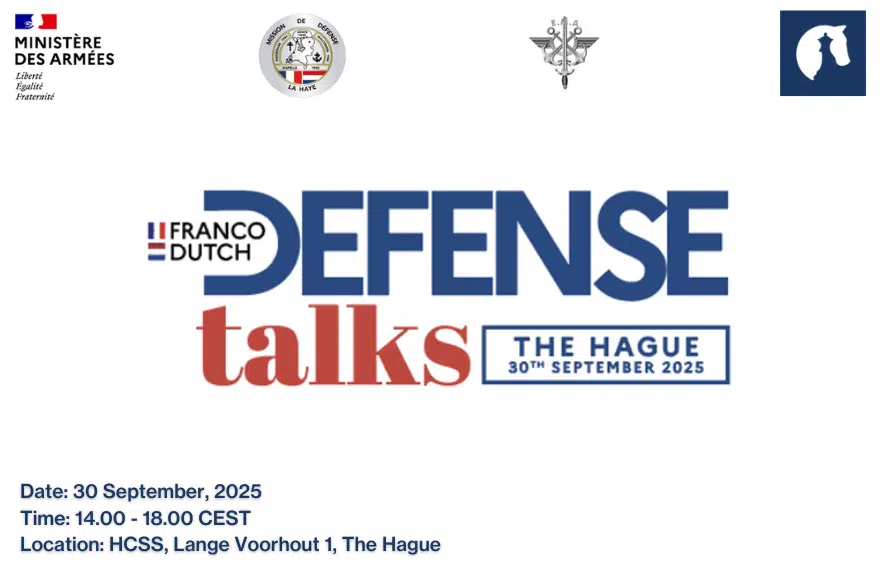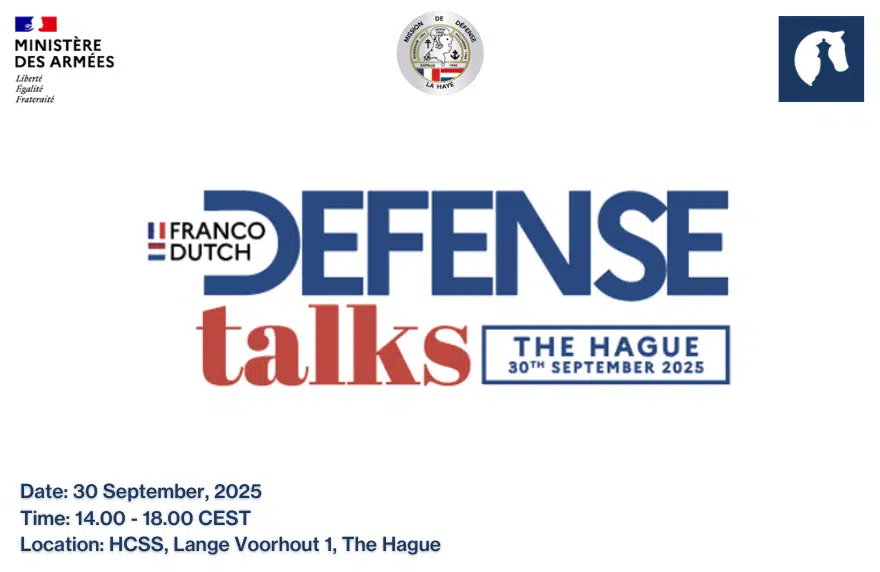On September 30th, HCSS hosted the inaugural Franco-Dutch Defence Talks supported by the French Defence Attache office in the Netherlands.
Opened by His Excellency the Ambassador of France to the Netherlands François Alabrune and by HCSS research director Dr. Tim Sweijs, the day featured an opening keynote and discussion between Dr. Bruno Tertrais and Dr. Sweijs.
We were then joined by a stellar cast of speakers for a panel discussion, featuring Professor Isabelle Duyvesteyn, Ms. Héloïse Fayet, Dr. Linde Desmaele, and Dr. Florian Galleri, moderated by HCSS analyst Dr. Davis Ellison.
This year’s meeting focused on the state of European discussions on nuclear deterrence, with a particular focus on the current debates surrounding the role of European nuclear weapons considering the Russian invasion of Ukraine and American instability. The day was marked by the frank and valuable exchanges of ideas, including:
- It was questioned whether there is, in fact, a “third nuclear age”, given that multipolarity and nuclear coercion are not new, and there has not been wider proliferation or a return to nuclear testing
- Both French and Dutch experts noted the need for an “intellectual rearmament”, for officials to become more engaged with the grammar of nuclear affairs
- The discussions stressed the need for closer collaboration between nuclear and non-nuclear European allies, building on the Northwood Declaration between London and Paris
- Uncertainty around U.S. security guarantees highlights the urgency of stronger, more self-sufficient European deterrence and defence.
- Punishment and denial were debated as complementary approaches to strengthen Europe’s deterrence posture
- The Russia-Ukraine war and recent drone incursions in Europe seem to have confirmed the stability/instability paradox: nuclear restraint enables more conventional aggression
- While Russian nuclear threats are often overstated, they reinforce the importance of credible signalling and readiness
- Practical cooperation in non-nuclear areas have already shown results: Dutch submarines and radars, French artillery, Dutch F-16s, and joint exercises
- The bottom line: strengthen interoperable capabilities, pair political will with tangible measures, and reassure non-nuclear allies through credible deterrence signalling at the conventional level, and when necessary, the nuclear level
We look forward to continuing to cooperate with the Embassy of France, and to contributing to these important discussions.
Embassy of France in the Netherlands | Ministère de la Défense













